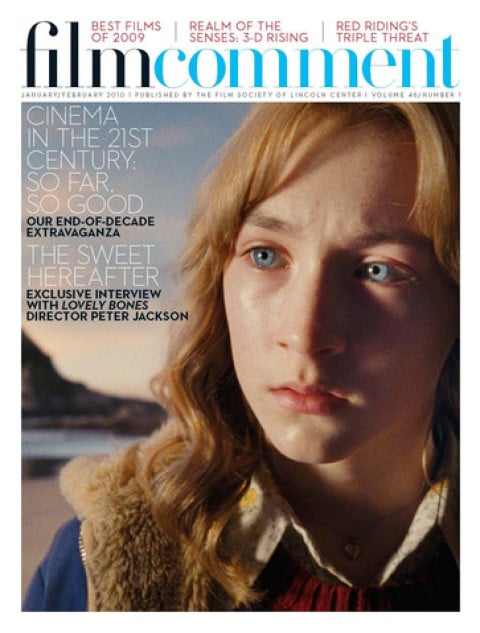
At first glance, the modest council-estate apartment where much of Andrea Arnold’s Fish Tank unfolds seems lovely—filled with sunshine, soft colors, and decorative flourishes like seashell wind chimes and a photomural of a tropical beach. Music is often playing, and an affectionate dog is clearly a cherished pet. But a water-stained ceiling and soiled walls around light switches suggest that it’s a place where dreams are tinged with neglect. More tellingly, a sign on the mother’s bedroom door reads “Parental advisory—keep out,” as if she’s forgotten she’s no longer a teenager.
Arnold has a knack for subtle details but also for portraying female characters whose natural warmth and energy have been muted by trauma or social isolation—young women who might have blossomed under better circumstances—as in her vivid short Wasp (03), about a cheerfully desperate mother of four who stashes her hungry kids in a back alley while she hooks up with an ex-boyfriend. A feisty, doe-eyed 15-year-old, Fish Tank’s heroine Mia (talented nonprofessional Katie Jarvis) doesn’t get much attention from her sexy mother, Joanne (Kierston Wareing), beyond an occasional pinch, threat, or insult. When Mia yells, “You’re what’s wrong with me!” in response to that old parental chestnut “I don’t know what’s wrong with you,” she’s stating the obvious. And yet, thanks to Jarvis and Wareing’s remarkable performances—and the film’s quiet conclusion—one senses affection buried beneath the antagonism.
The film begins with Mia trying to apologize for something she did to alienate her former best friend. Leaving an abandoned apartment where she’s been practicing hip-hop moves, she finds the neighborhood girls in a parking lot. They’re also dancing, albeit with more skin exposed and for a male audience. Mia, clad in baggy sweats, perches on a railing and curls her lip in amazement. When she head-butts a girl who taunts her, police and a social worker visit her home. Told she’s being sent to a school for troubled youth, she fixates on attempting to rescue a frail horse she discovers chained near a mobile home.

And then, as alluring as a white horse, Joanne’s new boyfriend, Connor (Michael Fassbender), appears. Louche yet sensitive, with a five-o’clock shadow, a crystal suspended from his rearview mirror, and a manner alternately paternal and seductive, he briefly seems to promise a happier home life for Mia and her gregariously foul-mouthed kid sister, Tyler (Rebecca Griffiths). When he’s not partying with Joanne, he takes the family on an outing and encourages Mia to answer an ad for a dance audition. Unfortunately, his thinly veiled attraction to the teenager leads to a disastrous mistake, followed by a revelation about the life he left behind that is so shocking it inspires Mia to commit a terrible act.
Fish Tank’s title may refer to the council estate, not far from the sea and bordering on factories and a wasteland, or perhaps to the aqua room in which Mia drinks alone, dances, and surveys the street below. But it also suggests a realm in which large creatures can’t help but devour the smaller ones. Arnold makes a good case for not judging her characters, yet provides ample evidence for how easily minor transgressions—Joanne’s cutting remarks, Connor’s lies to Joanne and his selfish flirtation with Mia—can shade into more destructive ones. As well as how love doesn’t always prevent parents from dragging their children down with them, a bitter truth underlined by a tabloid headline glimpsed near the end of the film: “Dad and Son Hanged from the Same Tree.”
The story unfolds amid lush color and glowing summer light, so it’s no surprise that Arnold reportedly admires Nan Goldin’s downbeat yet radiant photographs. Her tale of surveillance and revenge Red Road (06) was also evocatively shot, but Fish Tank, which is pitilessly plausible, lingers longer in the memory. It’s also the anti-Thirteen, painting a complex, and deeply sad, picture of the fraught intersection between teenage and adult desire and the ways in which mothers fail their daughters.








